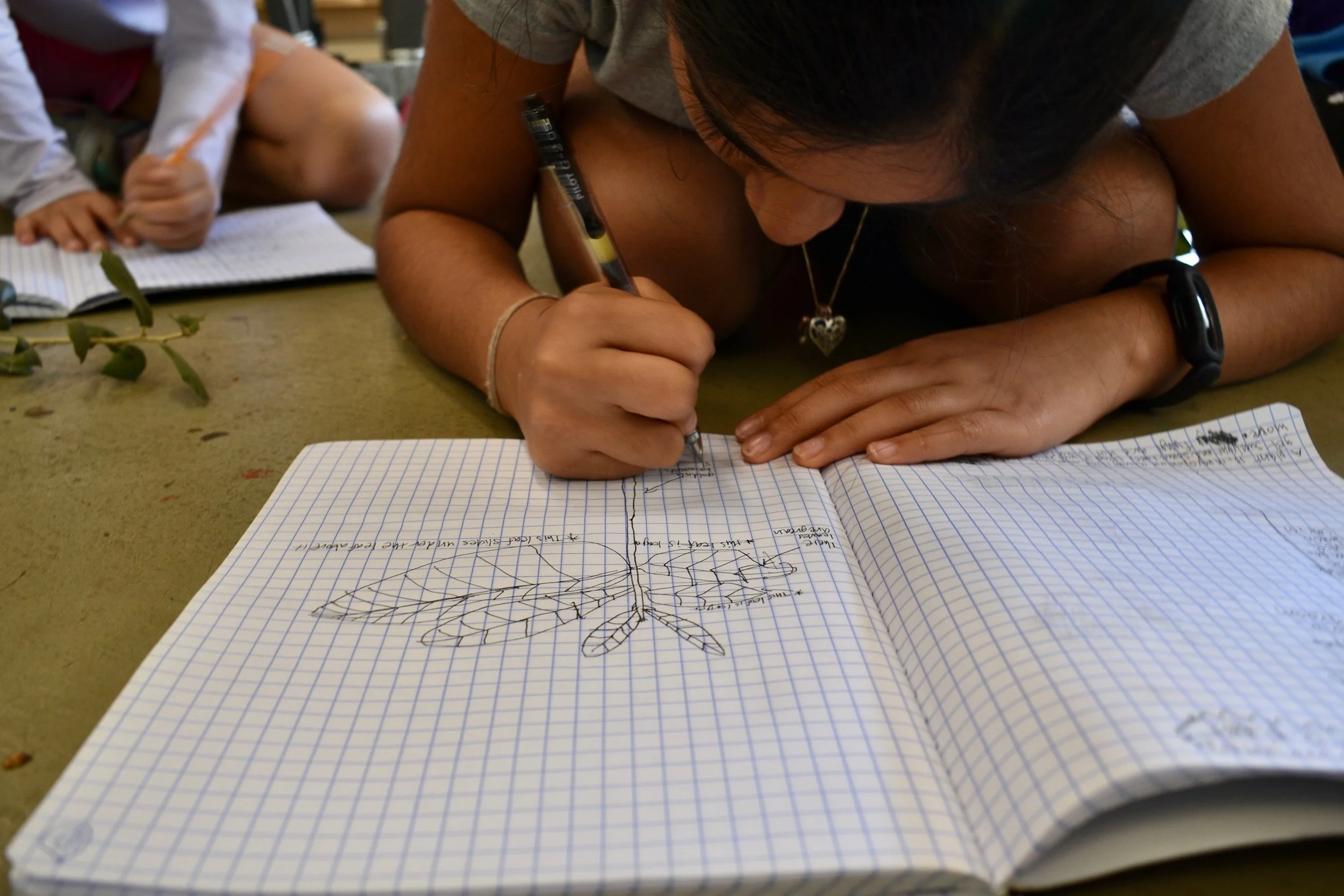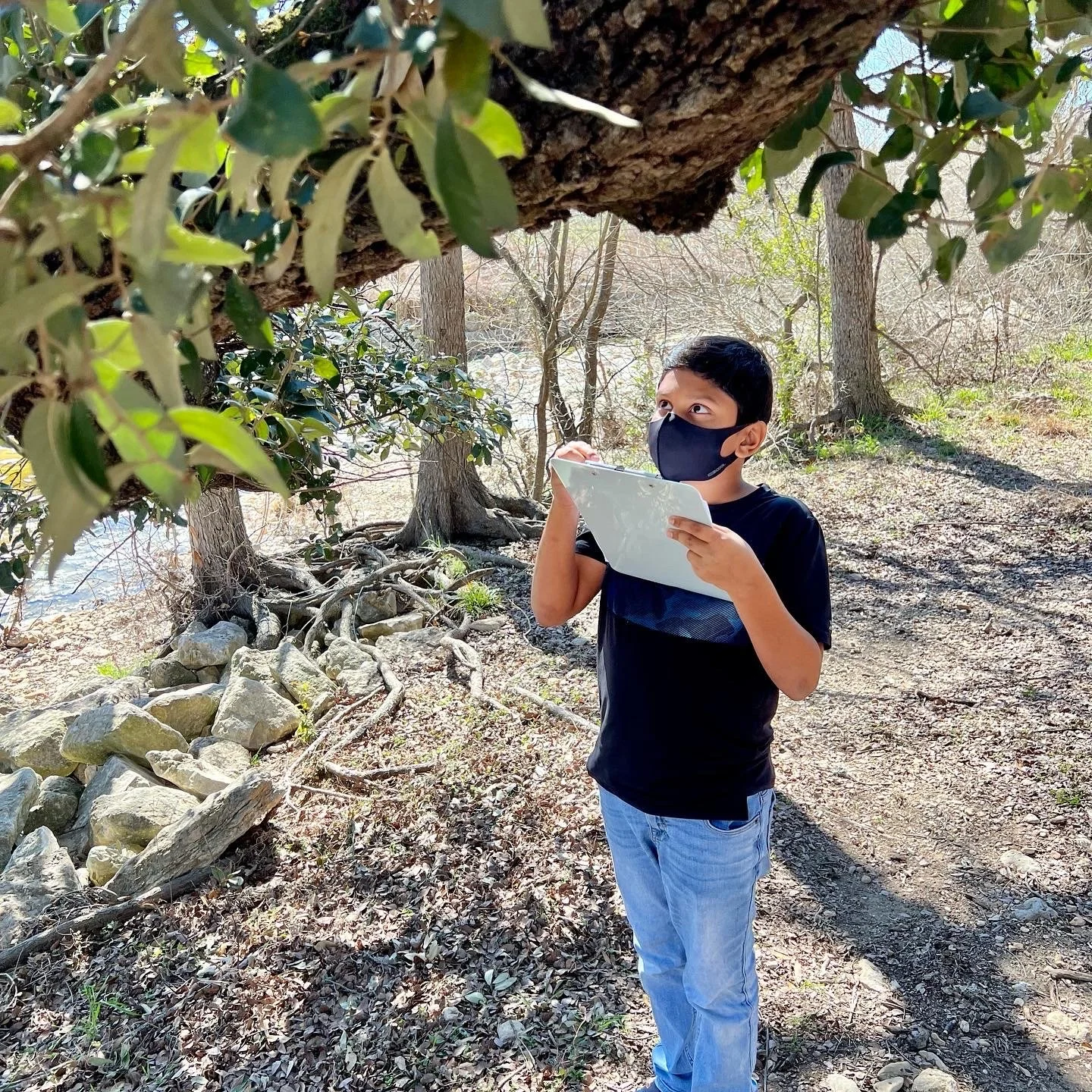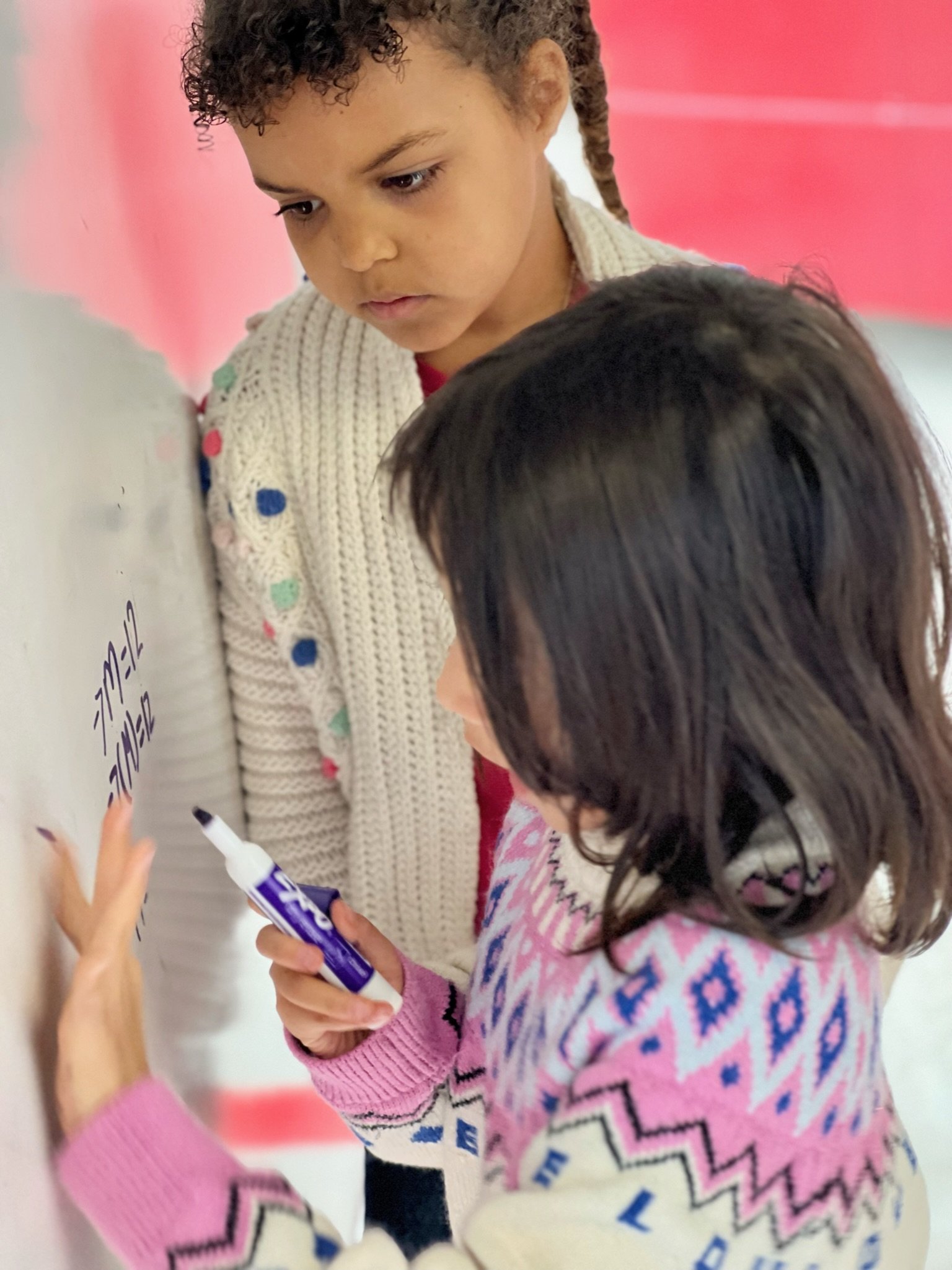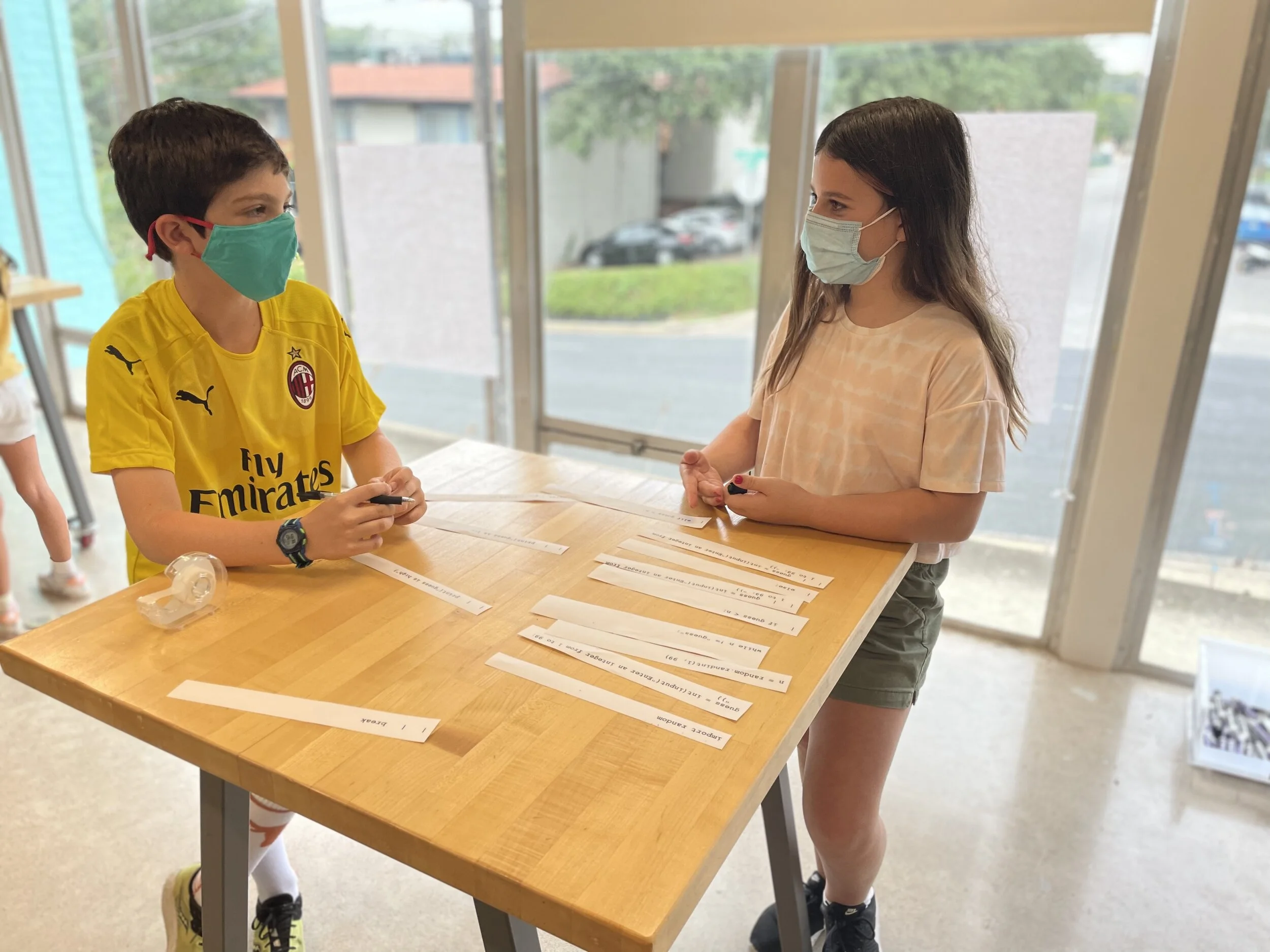Learning for the Long-View
It's time to start Learning for the Long-View. We wanted to share an exciting project we have been working on this summer. We have created a new platform to support educators (and interested parents!) called “Learning for the Long-View.”
Learning for the Long-View is a subscription-based website focused on elevating learning and transforming thinking in mathematics. Members will have access to a dynamic library of videos, guides, graphics, scripts, as well as weekly chats and live events with the Long-View team. This is all in addition to weekly lesson plans.
Our math team is continuously working to spread the Long-View approach. In this new web platform, subscribers have an innovative way to develop content knowledge for the teaching of mathematics, while also exploring how advanced pedagogy can elevate and impact learning….
Read More
Two Hundred Years of Pedagogical Thinking: Amber Band Explores Theories of Education
Where does the Long-View model come from, in terms of its theoretical orientation? How does it compare to other educational experiences? Since Winter Break, Amber Band – generally, this year’s oldest group of Long-View learners – has considered these questions and more as a part of a sustained inquiry into pedagogical models in Literacy Block. Dr. Flider, who leads Amber Band in Literacy, described the goals of the unit, saying “the idea here is to really give the learners an intimate sense of the educational project that is Long-View and the way that it truly is informed by two hundred years of pedagogical thinking. I also want them to be more informed "consumers of education" as they move into high school and college.”
In service of these goals, learners have listened to their teachers describe their own formative experiences in the “Educators on Education” interview series; read theories of education by writers from Bronson Alcott to Paulo Freire; debated each other over best practices; and conducted their own research into areas of interest in this field.
Today’s post features the research writing of Amber Band learner Makhai Lee: “Education in the Juvenile Justice System.” We’ll examine several excerpts from Makhai’s essay (full text here)….
Read More
Awakening to Climate Change: A School-Wide Inquiry
She looked straight into my eyes and said, “Mr. Cooley, imagine if you heard people talking about climate change all the time – from adults, TV, etc. – but didn’t know what it was. How would you feel?”
Annelise, a learner in Emerald Band, spoke these words to her science teacher in March as they discussed her favorite moment of the year in a reflective interview. She continued, “I remember the moment when I “got” climate change. Before that I had realized that something was wrong, and heard about it on TV and radio, but didn’t understand it. I kind of felt left out of the conversation but now I actually figured out what it really means.” Annelise’s reflection speaks to the intense experience of growing up in a time when climate anxiety is omnipresent and talk of this complex situation is constant….
Read More
Our Assumptions and How They Create a Focus on LEARNING
At Long-View we are not trying to be another school or just “do school,” but rather we are working very purposefully to create an environment focused on learning.
We define learning as constructing knowledge together. The most important part of our pedagogy is that we are reasoning together, trying to understand something together at a deep level. Everything we do works to create a culture centered around this idea. Rooted underneath that work and culture are the assumptions we make as we approach learning and teaching.
We assume children have significant capacity for understanding….
Read More
Mid-Year Conferences: Taking Stock and Looking Ahead
For the week before Winter Break, no learners whittled in the maker space, scribed on the whiteboards, or curled up with books in the library bean bags, but Long-View was busy nonetheless. The teachers of Long-View devoted the week to analyzing and sharing the work of our learners in mid-year conferences with their families. Along with artifact portfolios, conferences are one of the primary ways we document and communicate how children at Long-View learn.
Throughout the year, Long-View teachers study learners to understand their progress and guide instruction. We think hard, and often collaboratively, about their work. We pay attention to daily behaviors and interactions, and often document particular moments and written products through photos and videos. These digital documents, and the written products themselves, are what we call artifacts of learning….
Read More
From Concept to Process: Teaching the Nature of Science
How do you prevent misunderstandings at a school like Long-View, where learning is student-directed? Under what circumstances does a teacher provide the "right answer," especially in the science classroom? Moreover, what constitutes scientific consensus? According to who? What does it mean to be "right"? Concern about the right answer belies a common misconception about science education—a misconception resulting from faulty science education—premised on the understanding of science as a body of settled knowledge.
Recent developments in science education reflect a shift in emphasis from science as a body of knowledge to a broader view of science that addresses the nature of scientific knowledge itself and the skills required to access and evaluate media accounts of science. In short, the goals of science education have shifted from scientific knowledge to science literacy—the scope of practice in the field of science has broadened from "how the scientific community produces science information, [to] how media repackage and share the information, and how individuals encounter and form opinions on this information….”
Read More
Build Week 12: Bridges and Failure Modeling
Build Week 12 occurred last week and was a great example of the rich opportunities that lie within the challenge of a Build Week. The focus this time was on bridges and understanding the idea of “failure modeling.” The learners were placed in 3 person teams and given a Call to Action for a bridge prototype. Here’s one team’s Call to Action:
DEVELOP, DESIGN, AND CONSTRUCT A PROTOTYPE FOR A LONG-SPAN BRIDGE
Introduction: Your team’s goal is to design a prototype for a long-span traffic bridge to cross a one-mile-wide strait connecting a bay to an ocean. Your team is in competition. On Thursday, October 28th, your prototype will be tested for its strength to weight ratio. During this time, your team will also have to defend your engineering and structural choices and account for any future changes that have become evidently necessary through the failure modeling Research and Design process. Your prototype should be designed to carry approximately 100,000 vehicles/day. Your team should aim to both design and build the lightest and strongest prototype….
Read More
When Reading Level and Maturity Level Don’t Align: How We Think About Our Young, Advanced Readers
Let’s say you’re in fifth grade. You’ve already read all the Harry Potter books three times (okay, you’ve read the first one seven times). You know the entire Percy Jackson series by heart. Your start-of-year reading assessment vaulted you comfortably from level Z to level Z+ on the Fountas and Pinnell reading scale, so you’re now clocking in at a high school reading level, and you keep hearing that you need to read more advanced books. Your older sister (who’s also a Z+ reader) and all her friends are raving about a new young-adult masterpiece that’s won all kinds of awards, but the characters are juniors in high school and they do stuff at a party in the very first chapter that makes you want to drop the book and go straight back to Harry Potter. Where do you turn?
This is a challenge we encounter all the time. At Long-View, 78% of our learners are reading at the Z+ level; this indicates a high school level in terms of both literal and inferential comprehension….
Read More
Frontloading Computational Thinking in the Long-View CS Block
For those who have limited experience in the modern Computer Science domain, it is easy to make the assumption that it is all about learning the syntax and semantics of specific programming languages. However, over a century before the first computer was successfully built, mathematicians Ada Lovelace and Charles Babbage worked to tackle complex problems crucial to Computer Science. At Long-View we like to think of coding as just one tool we use to study the science of computing and instead of planning our learning around programming-specific skills, we ensure the learners are getting the most out of their two hour weekly instruction by focusing on a problem-solving process known as “computational thinking.”
Jeanette Wing first brought this process to the forefront of computer science pedagogy in her 2006 article in Communications of the ACM. Since then, many CS programs in both the k-12 and higher education spaces have adapted their curriculum to frontload concepts and practices promoted under the umbrella of computational thinking….
Read More
Campfire at Long-View
Just before 9:00, when it is time for the day to begin, the sound of the singing bowl fills the main hallway. This low hum alerts that it’s time to begin Campfire and everyone quickly begins to tidy up from the before school projects, workshops, and other happenings, and check the Campfire calendar to choose which of the three discussions to join. Campfire topics and ideas are ignited in a variety of ways. They could be centered around a current event, a personal passion, a historical figure, a question sparked from a podcast, a desire to analyze an intriguing graph, an interesting NPR article, or wonderings about a science investigation….
Read More











